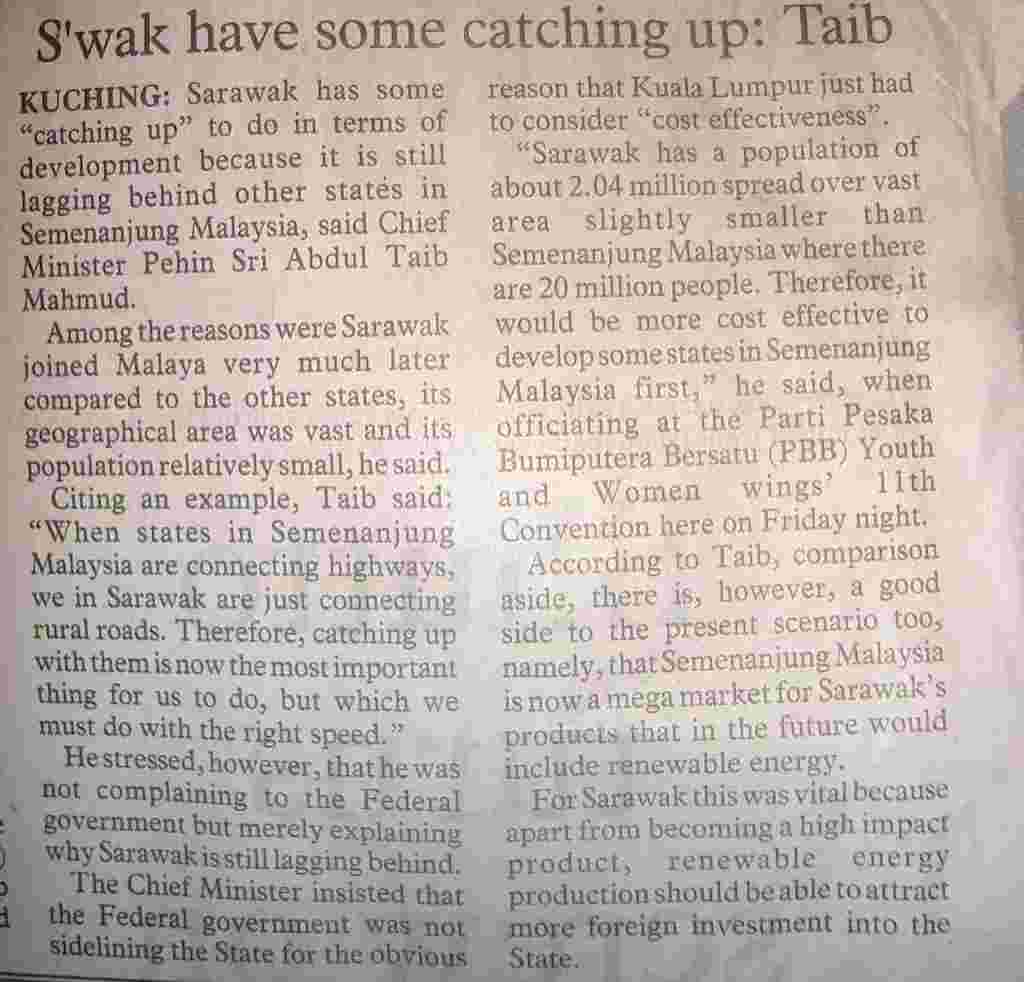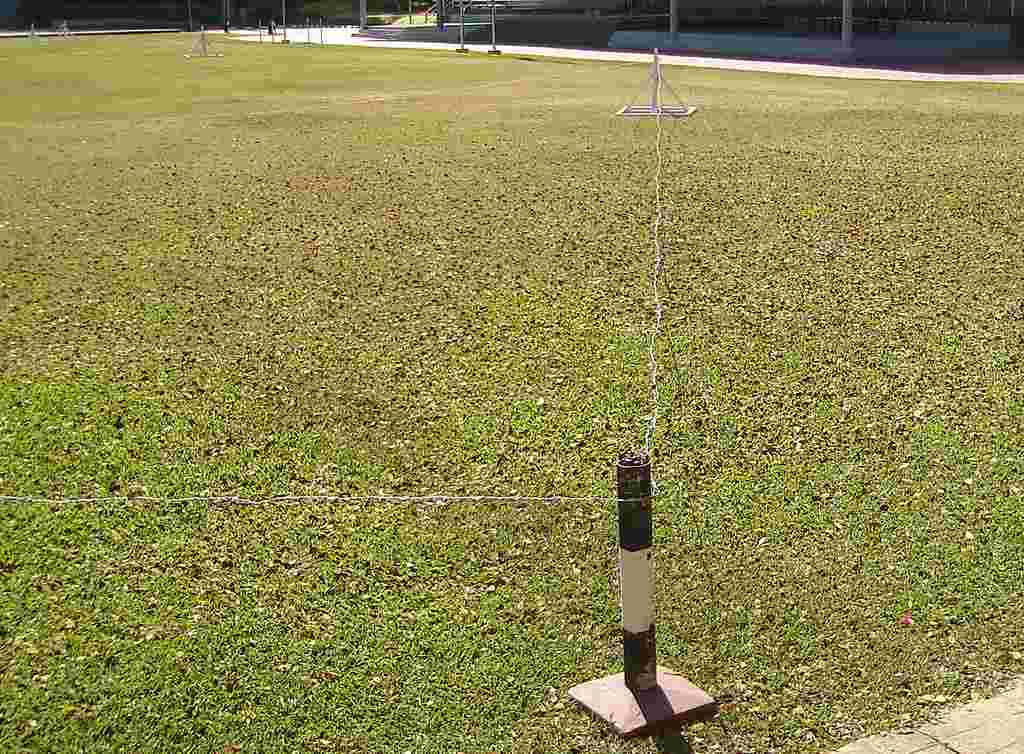Malaysia Agreement is already Null and Void
It has just occurred to me that the Malaysia Agreement is already Null
and Void. No need to wait for the agreements to be fulfilled and no
way to rectify it. Can you refurbish a Null and Void agreement? You
can't.
What is missed is the statement in the Borneonisation. The words is
"when Sabahans are qualified".
How can SAbahans not qualified to lead their departments after more
than 10 years? Ridiculous, isn't it.
Let alone 47 years. Borneonisation should have been carried out within
10 years. More than than is just unreasonable. It this failed to be
carried out, then the Agreement is null and void. Even though, Malaya
were to honour the agreement by making all Federal Posts be given to
Sabahans, now, the agreement remains Null and Void.
So there is no point in putting the no cessation clause. Since there
is not Malaysia Agreement, Sabah can demand to be independent any time
now, despite all attempts to fulfill in full the rest of the
agreements.
One option is to renegotiate a new Agreement but Agreement between a
subjugated member will never invalidate the agreement before Sabah was
colonised by Malaya.
One of these days, a few disgruntled groups from SAbah will bring this
Malaysia Agreement to the world court and declare Sabah independent,
like Kosovo. You can imagine what the decision that the World Court
will take. Enforcing it is another matter but it won't be peaceful
until Sabah is devoid of all resources. Even Sabahans will be kicked
out sooner or later.
What is so important about Borneonisation? All the problems that Sabah
face are due to the non-compliance of this part of the Malaysia
Agreement. The corruption, illegal immigrants, destruction of fishing
by bombings, crimes, drugs, gambling, human trafficking are due to
enforcement departments that are not headed by SAbahans, but by
Malayans who never consider Sabah as Malaysia.
Why should they care about Sabah? It is not even considered as their
country. The destruction of SAbah is not the destruction of Malaysia
so corruption, denudation and other social ills are small prices for
these officers' prosperity in their true county, i.e. Malaya aka
Malaysia.
I stand with the view that humans are different from animals because
of their honour. Those who do not honour agreements are not humans but
animals. And you know how animals behave. They have no regard for
human lives. In fact many Sabahans were already victims, directly or
indirectly. Honestly, I am talking about being killed.
About Sabahans killing Malayans? Never hear even a word, but
Sarawakians, yes. No wonder Sarawak is more advanced than Sabah.
Will Sabahans ever fight back? Never. They won't even fight back
politically. But beware, true SAbahans are getting less and less. Too
many immigrants. Malayans will reap what they sow. They already get
this experience right at their backyards. After all, despite what
Malayans like to think, Sabah is still Malaysia.
http://www.freemalaysiatoday.com/fmt-english/politics/sabah-and-saraw...
Time KL honoured 20-Point Agreement, says BN senator
Mon, 13 Sep 2010 15:43
E-mail Print
By Michael Kaung
KOTA KINABALU: Three days ahead of the 47th anniversary of the
formation of Malaysia, a Sabah Barisan Nasional party has again urged
the federal government to honour its 20-Point Agreement with the
state.
The United Pasokmomogun KadazanDusun Murut Organisation (Upko) warned
that failure to stick to the agreement would prolong the friction
between the federal government and the people.
“For as long as the federal government remains in a state of denial,
the friction will continue,” Upko vice-president Senator Maijol Mahap
said here yesterday.
"After 47 years of being part of Malaysia, Sabahans have not made any
unnecessary demands such as wanting a local to be the Yang diPertuan
Agong or the Timbalan because this was not included in the agreement,"
he said.
"If Sabahans continue to be denied (the rights guaranteed by the 20
points), then how can the 1Malaysia concept of 'people first,
performance now', be achieved as the definition of the concept is to
ensure that all Malaysians are provided with opportunities
irrespective of region or state?" he said.
"In the context of Sabah, the rights of the people are contained in
the 20-Point Agreement, which were agreed on before the formation of
Malaysia," Maijol said.
He added that "if the decision-makers do not understand or purposely
deny the contents of the agreement, then this issue will continue to
be a source of conflict every time it is raised".He said the federal
government should by now understand why people in Sabah keep demanding
that Sabahans head its departments in the state.
The bitter pill for most Sabahans, he said, is that despite the 20-
Point Agreement clearly stating that the “Borneonisation” of federal
departments and agencies in Sabah should be done as soon as possible,
it had become a broken promise.
Maijol said the wording of the agreement clearly indicated that
Sabahans should be appointed to the posts as soon as they were
qualified and not when a post became available.
"Sadly, when that happens, an officer from Peninsular Malaysia,
despite having served only a few months, will be transferred to Sabah
to head the agency or department.”
He said such officers were unsuitable as they lacked an understanding
of the conditions and feelings of the people to plan and implement
government policies. As such, their tenure in the state was a waste of
time.
He said Sabah has a different set of values from the peninsula, adding
that civil servants there were bound to make mistakes.
Maijol said the “Borneonisation” policy was a case of common sense as
qualified Sabahans would be able to make an impact on the lives of the
people.
The Sabahan civil servants would be familiar with the local situation
unlike officers who were transferred from other places.
Maijol said the usual excuse that local officers were still
inexperienced compared to their counterparts from Peninsular Malaysia
was no longer acceptable.
The 20-Point Agreement relates to:
Point 1: Religion
Point 2: Language
Point 3: Constitution
Point 4: Head of federation
Point 5: Name of federation
Point 6: Immigration
Point 7: Right of secession
Point 8: Borneanisation
Point 9: British officers
Point 10: Citizenship
Point 11: Tariffs and finance
Point 12: Special position of indigenous races
Point 13: State government
Point 14: Transitional period
Point 15: Education
Point 16: Constitutional safeguards
Point 17: Representation in federal parliament
Point 18: Name of head of state
Point 19: Name of state
Point 20: Land, forests, local government, etc.


